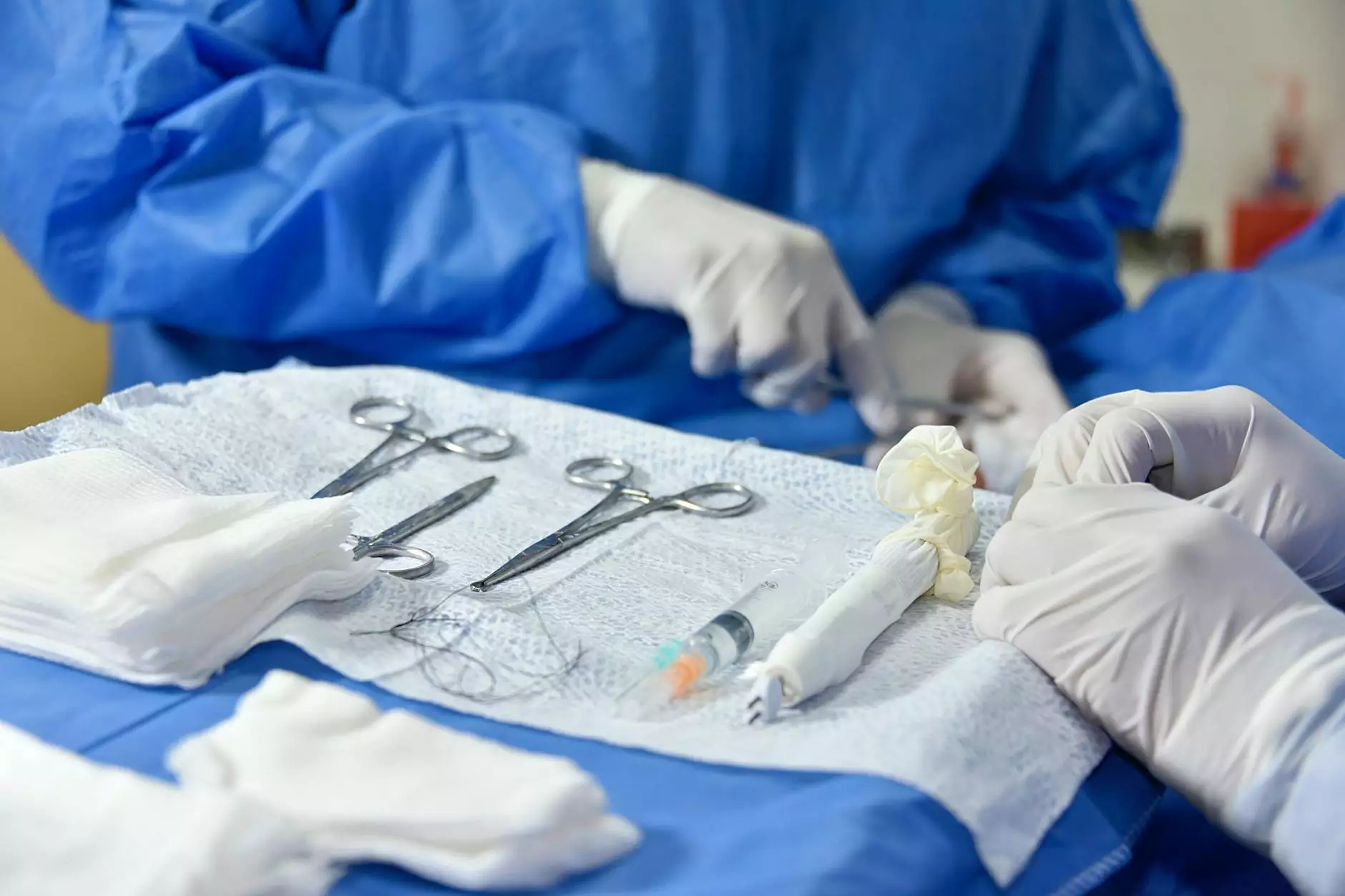The Indispensable Role of Thoracic Surgeons in Modern Medicine

In the realm of health and medical care, few specialists play as critical a role as the thoracic surgeon. These highly trained professionals focus on diagnosing and treating diseases and conditions affecting the thoracic cavity, which includes the heart, lungs, esophagus, and various other structures. Their expertise is essential not just for traditional surgical interventions, but also in the growing fields of sports medicine and physical therapy.
What is a Thoracic Surgeon?
A thoracic surgeon is a medical doctor who specializes in surgical procedures involving the organs within the thorax. This specialization requires extensive education and training. Typically, a thoracic surgeon undergoes:
- 4 years of undergraduate education
- 4 years of medical school
- 5 to 7 years of general surgery residency
- 2 to 3 years of specialized fellowship training in thoracic surgery
This rigorous training enables them to perform intricate procedures such as:
- Lung resection surgeries (like lobectomy and pneumonectomy)
- Heart surgeries (such as coronary artery bypass grafting)
- Esophageal surgeries
- Thoracoscopic surgeries (minimally invasive techniques)
- Transplant surgery (heart and lung transplants)
The Importance of Thoracic Surgeons in Health & Medical Care
The work of a thoracic surgeon is pivotal in numerous medical contexts. They not only treat life-threatening conditions but also enhance the quality of life for many patients. One critical area where their impact is felt is in treating conditions related to lung diseases.
Lung Health and Thoracic Surgery
Conditions such as lung cancer, chronic obstructive pulmonary disease (COPD), and pulmonary embolism can require surgical intervention. A thoracic surgeon ensures that patients receive proper evaluations and surgical options when necessary. Early detection and treatment can lead to significantly improved prognosis and survival rates.
Cardiac Care and Thoracic Surgery
In addition to lung surgery, thoracic surgeons are extensively involved in cardiac care. They address congenital issues, heart valve problems, and coronary artery disease. With advancements in techniques like minimally invasive surgery, patients can experience quicker recovery times and fewer complications, a testament to the evolving practice of thoracic surgery.
Thoracic Surgeons and Sports Medicine
As the world of sports medicine continues to develop, the role of a thoracic surgeon becomes increasingly significant. Athletes may face injuries that require surgical intervention. Conditions such as traumatic rib fractures or subclavian artery injuries necessitate the expertise of a thoracic surgeon to ensure the athlete returns to peak performance safely.
Common Sports-Related Injuries Requiring Thoracic Surgery
- Rib and sternal fractures
- Pneumothorax (collapsed lung)
- Thoracic outlet syndrome
- Diaphragmatic rupture
Timely intervention by a thoracic surgeon can minimize downtime and improve the chances of full recovery, allowing athletes to maintain their competitive edge.
Integration of Physical Therapy in Thoracic Surgery Recovery
The collaboration between thoracic surgeons and physical therapists is crucial for optimal recovery. After surgery, patients can benefit greatly from physical therapy. This integration helps patients regain strength, mobility, and lung function. A well-structured physical therapy regimen can include:
- Breathing exercises to enhance lung capacity
- Strengthening exercises for the thoracic and core muscles
- Cardiovascular conditioning to improve overall stamina
The Role of Physical Therapists After Thoracic Surgery
Physical therapists work closely with thoracic surgeons to provide postoperative care tailored to each patient's needs. Their involvement leads to quicker recovery times and a smoother transition back to daily activities, highlighting the importance of a multidisciplinary approach in health care.
Advancements in Thoracic Surgery
The field of thoracic surgery is constantly evolving with technological advancements. Procedures that were once considered high-risk are now performed with greater safety and efficacy:
- Robotic Surgery: Utilizing robotic systems allows for precise movements and smaller incisions.
- Video-Assisted Thoracoscopic Surgery (VATS): This minimally invasive technique aids in lung and pleural space surgeries with less discomfort and faster recovery.
- Heart-lung Machines: Innovations in cardiovascular surgery now allow complex operations on the heart and lungs to be performed with enhanced patient safety.
Patient-Centric Approach in Thoracic Surgery
A successful thoracic surgeon places great emphasis on patient care. This means being available for consultations, providing thorough explanations of procedures, and advocating for informed decision-making. Patients can greatly benefit from understanding the risks and benefits associated with their treatments, ensuring they feel comfortable throughout the entire process.
The Importance of Communication
Communication between the surgeon and the patient is crucial. Informed patients are typically more engaged in their recovery process, which can lead to better outcomes. Thoracic surgeons make it a point to foster a supportive environment that encourages questions and discussion.
The Future of Thoracic Surgery
As technology advances, the future of thoracic surgery looks promising. Innovations in telemedicine will allow patients to connect with their surgeons remotely, expanding access to care and improving follow-up options. Additionally, ongoing research into regenerative medicine and personalized medicine may lead to new treatments and surgical options.
Conclusion
The role of a thoracic surgeon is vital in the broader context of health and medical care. Their expertise not only saves lives but also enhances the quality of care received by patients across various specialties, including sports medicine and physical therapy. As the field continues to evolve, the thoracic surgeon's contributions will remain indispensable in offering patients the best possible outcomes.









